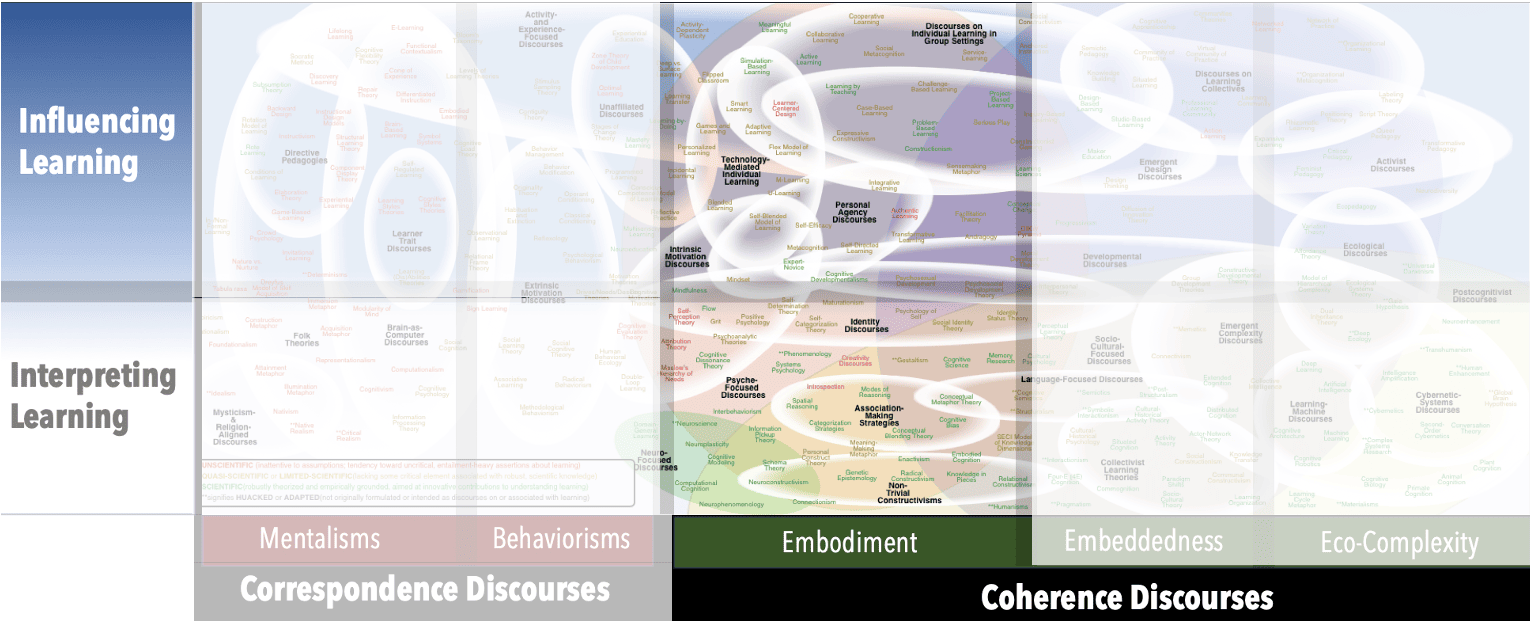Focus
Perspectives on knowledge/knowing that prioritize individual learning
Principal Metaphors
- Knowledge is … personal interpretation
- Knowing is … acting on one’s interpretations
- Learner is … active agent
- Learning is … sensemaking; meaning-making; construing
- Teaching is … facilitating; occasioning; modeling
Rise to Prominence
late-1800s (in formal education)
Synopsis
As a basis of knowledge/knowing, Subjectivity has to do with personal experience. Subjectivity-focused perspectives on knowledge/knowing assert that no-thing moves from the outside to the inside in moments of learning. Rather, learning is an ongoing internal dynamic – an iterative dance of refining one’s web of interpretations to maintain coherence with one’s unfolding experiences. Concisely, everyone makes their own coherent senses of the world, and a person’s subjective sense can resiliently defy objective evidence.
Commentary
Within education, the contrast between Objectivity-focused perspectives on knowledge and knowing and Subjectivity-focused perspectives is most apparent in a shift in emphases, from passive recipients (whose roles are framed in terms of acquiring objects or attaining objectives) to active agents. Regarding teaching, this shift is enacted as a move away from generalizable, delivery-oriented insights toward specific, actor-oriented strategies – a transition that was marked by the emergence of Progressivism, Alternative Education, and other 20th-century movements associated with Authentic Education. These trends are distinguished by their disdain for standardized practices and their interests in personal engagement, developmental variations, learner differences, and the possibilities afforded by aligning educational activity with individual curiosities and goals.
Map Location

Please cite this article as:
Davis, B., & Francis, K. (2023). “Subjectivity” in Discourses on Learning in Education. https://learningdiscourses.com.
⇦ Back to Map
⇦ Back to List
